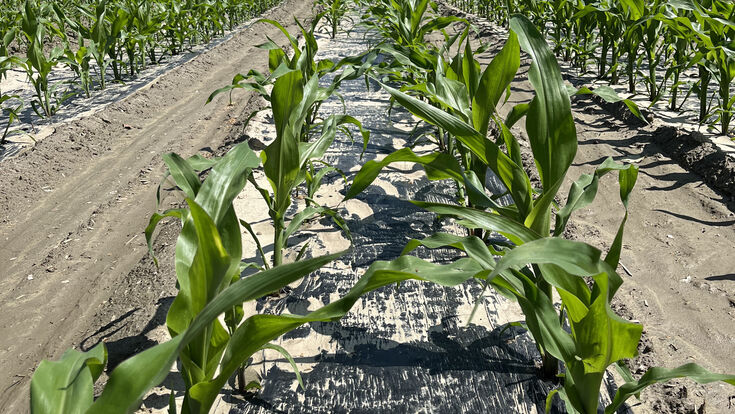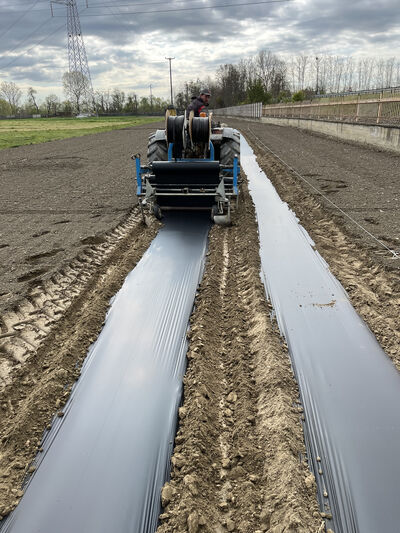Biodegradable Plastic : Planting the future: How bioplastic mulching films are cultivating a cleaner agriculture

Green alternatives for ground cover
The agricultural sector, traditionally reliant on synthetic materials, is now seeing a green shift. Sirmax Group, a thermoplastics manufacturer based in Cittadella (Padua), has ventured into sustainable agriculture with its latest innovation: a biodegradable plastic mulching film made from BioComp®. Certified as “Biodegradable Soil” under EN 17033:2018-3, this film is designed to suppress weeds while naturally breaking down in the soil—eliminating the problem of microplastics that plague conventional materials.
Sirmax’s move into agriculture reflects a broader commitment to environmentally responsible solutions across industries. Known for supplying thermoplastic granules to sectors like automotive and electronics, the company’s pivot is both timely and necessary as global attention turns to the ecological impact of modern farming practices.
Compostable solutions with scientific backing
Unlike standard lab tests, Sirmax took a real-world approach to validate its product. The company partnered with the University of Turin to test the biodegradable films in open fields, applying them to corn crops over a full growing season. The trials took place at the university’s experimental center in Carmagnola (Turin), comparing BioComp® against other materials from various manufacturers.
The outcome? Sirmax’s film matched the performance of chemical weed control and conventional mulching in terms of crop yield. Even more importantly, the soil showed a measurable decrease in micro-bioplastic particles within six months post-harvest—signaling genuine biodegradability.
Eco-conscious innovation in action
“This project," says Alberto Zanon, Head of the BioComp® division at Sirmax Group, "was conceived with the goal of providing scientific backing for a product that can genuinely contribute to more responsible management of natural resources in agriculture. It offers an alternative to traditional plastics used in this sector, providing benefits by reducing soil pollution and minimizing the production of waste that is difficult to dispose of. We are proud of the results achieved in this study because it demonstrates that Sirmax can compete in the sector by offering a biodegradable product that meets the performance requirements of its intended application.”
Sustainable materials through academic collaboration
The collaborative research brought together four departments from the University of Turin—Agricultural Sciences, Chemistry, Biology, and Veterinary Medicine. Their multi-disciplinary approach provided a comprehensive understanding of how the biodegradable material behaves in soil, its effects on microbial biodiversity, and its potential to reduce long-term pollution.
“The work we conducted with four departments at the University of Turin (Agricultural Sciences, Chemistry, Biology, and Veterinary Medicine), in partnership with Sirmax," explains Francesco Ferrero, scientific lead of the project at the University of Turin, "was aimed at studying the behavior of biodegradable plastics used for mulching corn, with a focus on the recovery of micro-bioplastics (MBP) in the soil, microbial biodiversity, soil functionality, and agronomic performance. The collaboration between Sirmax and the University of Turin serves as an exemplary model of synergy between industry and academic research, dedicated to developing innovative and sustainable solutions.”
With another round of testing planned this year, Sirmax’s biodegradable mulching film continues to show promise as a viable alternative to conventional agricultural plastics—helping farmers transition to practices that are as productive as they are planet-friendly.

